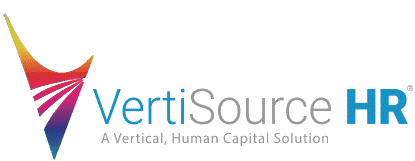New minimum wage and salary thresholds have taken effect across Colorado. With these new changes, there are a few things businesses need to consider and do to meet compliance.
The Increased Minimum Wage
The statewide minimum wage has increased to $11.79 per hour for those who receive tips and $14.81 for those who don’t. However, some municipalities have taken advantage of a state law passed in 2019 that allows local governments to set minimum wages.
Four communities have enacted local minimum wages:
- Denver: $18.81 per hour ($15.79 per hour with tip credit)
- Boulder: $15.57 per hour ($12.55 per hour with tip credit)
- Edgewater: $16.52 per hour ($13.50 per hour with tip credit)
- Unincorporated Boulder County (including Niwot, Eldorado Springs, Eldora, Allenspark, Gold Hill, Hygiene, Coal Creek Canyon, and those parts of Gunbarrel that are not part of the City of Boulder): $16.57 per hour ($13.55 per hour with tip credit)
Since local governments have implemented these, these wages will rise at different rates in the coming years. Denver’s rate is tied to the rate of inflation; Boulder’s is rising by eight percent annually through 2027; Edgewater’s is rising by ten percent annually through 2028; and Unincorporated Boulder County’s is rising by a fixed amount each year until it reaches $25.00 per hour in 2030.
Colorado’s Exempt Salary Threshold for “White Collar” Employees
After the U.S. Department of Labor’s significant increase to the federal salary threshold for the “white-collar” overtime exemption was blocked, many businesses might have assumed they were off the hook from raising employee pay to meet the exemption criteria. However, this isn’t the case.
Colorado’s salary threshold for executive, administrative, and professional employees is higher than the federal requirement. For 2025, employees must earn at least $1,086.25 per week (equivalent to $56,485 annually) and receive at least the minimum wage for all hours worked during the workweek to qualify for the exemption. Remember, salary alone isn’t enough—employees must also meet the specific job duty requirements outlined for the executive, administrative, or professional exemption.
“Highly Compensated” Employees Must Now Earn More Than $125,000
Under regulations, the salary threshold to qualify as a “highly compensated” employee has increased in Colorado. Employees now fall under this category if they earn at least $127,091 annually and $1,086.25 per week.
This threshold carries significant implications, particularly for noncompete agreements and other restrictive covenants. Colorado’s updated restrictive covenant statute states that noncompete agreements are invalid unless the employee earns at least the highly compensated threshold. Similarly, customer non-solicitation agreements are void unless the employee earns at least 60% of this threshold, amounting to $76,254.60 annually in 2025.
The Next Steps to Take
To meet compliance requirements, here are a few action steps to take.
- If there are any changes to compensation, be sure to communicate with employees about these changes.
- Make sure to keep and maintain accurate pay records.
- Audit your job descriptions to ensure that positions you treat as exempt under the “white collar” exemptions perform the necessary job duties.
- Review your employment agreements, including noncompetes and other restrictive covenants, to ensure covered employees meet the compensation threshold.


